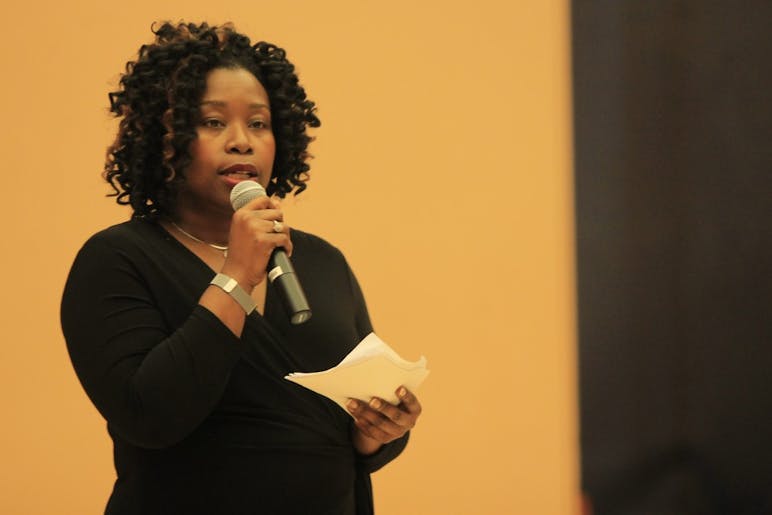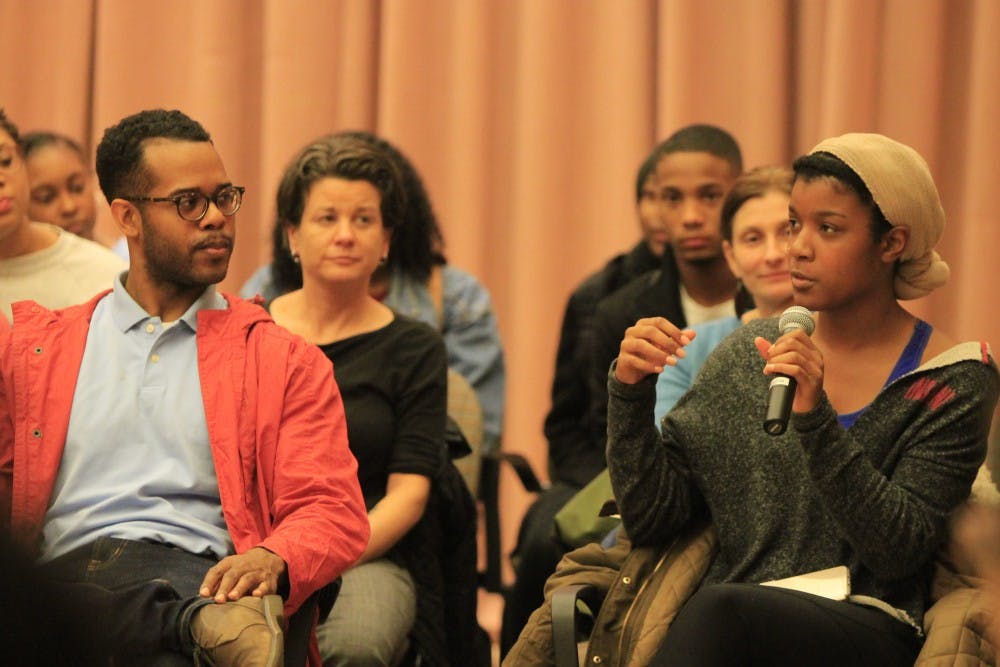Similar to many barber and beauty shops, the Neal-Marshall Black Culture Center was filled with hair supplies, barbers and political conversations Thursday evening.
The Neal-Marshall Black Culture Center and the IU School of Public Health collaborated to present “Hair Politics: Ode to the Black Barber/Beauty Shops and the Dialogue They Foster,” which honored the importance of hair care within the black community and fostered discussions about the oppression inherent in having black hair.
“If we don’t have a right to talk about the way we look, who else is going to do it for us?” Neal-Marshall Black Culture Center director Monica Johnson asked the crowd.
Representatives from The Waxing Studio, Bloomington Beauty Supply, Unique Xstendz Hair Company, and Empress A’Shauntess Beauty Supply and Urban Wear answered questions about healthy hair care and raffled off hair products throughout the night.
Johnson said barber and beauty shops are pillars of black communities.
In addition to providing hair care services, they create safe spaces for black people to seek advice and have politically charged conversations, Johnson said.
“You usually spend hours in a barbershop,” junior Jaslynn Hides said. “That’s where you have political conversations. You talk about race, religion, everything.”
Speakers at the event facilitated discussions on a wide range of topics including hair expectations in the workplace, hair hygiene and biracial relationships, simulating the open dialogues found in barber and beauty shops.
IU student Diquis Manley spoke about the debate over good versus bad hair. He reminded the audience black hair is special, citing a finding that black hair is scientifically proven to be the most difficult type of hair to maintain.
Dr. Sonya Johnson, an Indianapolis-based dermatologist, shared tips on both healthy haircare and skincare. Johnson said hair varies in shape depending on one’s ethnicity, which affects skin health.

Marcus Fletcher, an IU student, spoke about the Eurocentric standards for appearances in the workplace, which pressure black people to straighten their hair and tame their afros.
“Black hair has to be drastically altered, in one way or another, just to be considered professionally suitable,” Monica Johnson said. “Which means that black people have to be altered, one way or another, for society to socially construct us as professional.”
Hides said her hair is more accepted because of her lighter skin, but she has seen friends pressured to straighten their hair for job interviews.
“As a light-skinned woman, I can wear my hair in different ways than those with darker skin,” Hides said. “That’s a conversation I wanted to bring up.”
Another big concern for some, including junior Kianna Reed, is the right of black people to not be touched.
Reed said people will touch, ask questions, and take pictures of her hair if it’s out, without asking permission.
“I don’t like it," Reed said. "Nobody wants to just be touched without asking."
As passionate calls to action continued, a barber gave haircuts on the side of the room.
Junior Jesse Jones reminded the audience to feel confident about their individual hairstyles, regardless of social pressures to change or conform.
“Whatever you want to do, whatever you want to wear, it’s all about self-love,” Jones said.




